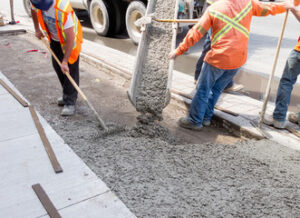Roof maintenance includes regular inspections, removing debris (such as leaves and twigs), addressing mold and algae growth, cleaning gutters, and ensuring proper attic ventilation. It also involves resealing flashing around chimneys, vents and skylights to prevent leaks.

Proper roof maintenance protects the investment in your home and helps ensure the safety of its occupants. A well-maintained roof also reduces energy consumption and keeps the home comfortable. Visit bearsvalleyroofing.ca to learn more.
A roof is one of the most significant investments in a property and it’s an important component of a home’s overall structure. It protects against water damage, deters pests, stops moss and algae growth, and enhances the curb appeal of a home or business. Nevertheless, it can only do these things if it’s kept clean. That’s why regular debris removal during roofing maintenance is critical to the longevity of a roof and the structural integrity of a building.
Debris accumulation on a roof isn’t just unsightly; it’s also dangerous. Leaves, twigs, and other debris can trap moisture, causing shingles to deteriorate over time. Additionally, moss acts like a sponge, absorbing moisture and causing the underlying materials to rot. Regular removal of debris can help prevent these problems, extending the lifespan of the roof and keeping occupants safe from pests and rotting materials.
It’s best to remove debris as soon as you notice it, rather than waiting until a big storm arrives. Debris can be carried by wind and rain, and if it isn’t removed promptly, it will accumulate on the surface of the roof, causing leaks, water damage, and deterioration of shingles. A professional roof cleaning service can do this efficiently and safely, without damaging the roofing material.
When debris is removed, it should also be cleared from gutters to avoid clogging and drainage issues. During the process, it’s important to check for any cracked or damaged shingles and to examine flashing and sealant for cracks and discoloration.
While a professional may be the best option for roof cleaning, most people can do the job themselves (though you’ll want to take some safety precautions to avoid falls and injuries). Start by placing a tarp on the ground near your work area to catch stray debris and ensure the safety of those working on the roof. You’ll also need a ladder, gloves, and a soft-bristle broom to remove loose materials from the roof. Lastly, clear the surrounding area of any trees that drop leaves or branches, as they can further block your work space and cause additional buildup.
Moss Removal
Moss grows quickly on a roof, especially in damp, shaded areas. Regular moss removal helps prevent structural damage and extends the life of your roofing materials. It also improves your home’s curb appeal and may reduce your energy bills by allowing the roof to properly insulate your house.
Moss removal should be done with a specialized moss remover. Other methods such as bleach and scraping can damage shingles and cause additional problems. In addition, if the moss is not completely removed, it can trap moisture against your shingles and promote the growth of other organisms such as mildew and mold, which also damage the shingles.
When scrubbing the moss, be sure to use a soft-bristled brush and always scrub in a downward direction to avoid lifting and damaging shingles. Also, be sure to use a ladder that is tall enough and use a sturdy safety harness when climbing the roof. You should also wear rubber gloves, safety goggles, and non-slip shoes while working on the roof.
After scrubbing the moss, it’s important to let the cleaning solution sit for 30 minutes to ensure that the chemicals kill all of the moss and loosen its grip on the shingles. Afterward, rinse the solution off with a hose on a low pressure setting.
You can do this in any season as long as the weather is good, but autumn might be the best time since it will give you a chance to clean up leaves and other debris before winter. If your roof is heavily covered in moss, you may want to consider hiring a professional who can use a power washer to thoroughly remove it.
Many shingle manufacturers require proper maintenance including moss removal and treatments, so this is something you should keep up with to ensure that your warranty is valid. Failure to perform these routine tasks can result in voiding the manufacturer’s warranty and leaving you responsible for costly repairs.
A moss-covered roof is unsightly and can cause serious structural damage over time. Investing in routine moss removal and treatments will help protect your investment, increase the longevity of your roofing materials, and boost your home’s curb appeal.
Inspect and Replace Caulk
The caulking around a roof is crucial to keeping water out of vulnerable areas, such as around vents and chimneys. Over time, the sealant can degrade from sunlight, rain, and other environmental factors. This can lead to leaks in the ceiling and walls of your home. Inspecting your caulking and reapplying it as necessary during roofing maintenance is one of the best ways to prevent leaks.
A reputable roofing contractor can identify potential problems and make repairs right away. If the damage is severe, it may be necessary to install a new roof. However, if the problem is minor and addressed immediately, it can help you avoid costly and unnecessary repair bills.
During your roofing maintenance, it is also important to check the gutters, fascia boards, and the eavestrough for signs of damage. Look for animal nests and debris that have clogged the gutters, as well as discoloration or staining on the fascia boards, which could indicate moisture intrusion.
You should also check the fascia boards for rot or soft spots, as well as areas where paint is peeling. Soft or rotting areas of the wood can cause severe structural damage to your home. In addition, black spots and mold on the fascia board are signs of excessive moisture exposure.
If the wood underlying the fascia boards is deteriorating, it will need to be replaced. This can be difficult to notice, especially if the area has been painted over. However, you can do a simple test by gently pressing on the fascia boards. If they give way easily or are soft, the boards should be replaced immediately.
It is a good idea to inspect the flashing and caulking around skylights, plumbing vent pipes, and chimneys as part of your regular roofing maintenance. The caulking around these areas must be tight to prevent water from seeping through. You should also inspect the flashing for any cracks or rust spots, which must be repaired as soon as possible.
Many of these issues start out small and can be easy to ignore, but they can quickly escalate into major problems that require costly repairs. Inspecting your roofing regularly and addressing any problems as soon as they appear can ensure that you have a healthy, leak-free roof for years to come.
Regular Inspections
A well-maintained roof contributes to the value and appearance of a home or commercial building. It also helps to protect the property and its occupants from severe weather conditions. Regular roofing inspections can detect problems that might not be readily apparent and prevent minor issues from escalating into costly repairs.
A roof is a substantial investment and a vital component of any building. However, it’s often overlooked and neglected until a problem arises. Taking the initiative to identify and resolve issues through regular inspections by professionals like BM Roofing extends the life of a roofing system, safeguards property and people, and reduces the risk of unexpected and expensive repair bills.
Roof inspections can help identify a variety of problems and potential issues, including missing shingles or water leaks. Checking the attic for signs of moisture damage, such as stains on the ceiling or walls, is another important step.
Other essential tasks include examining the gutters for blockages and cleaning, trimming overhanging branches to prevent scrapes against the roof, and inspecting and cleaning the valleys to ensure proper drainage. A professional inspection will also look for shingle granules, which are a sign of wear and tear, and any other indicators of a problem, such as sagging or uneven areas on the roof surface.
During routine maintenance, professionals can examine the integrity of the entire roofing structure, including the insulation and structural supports, and make any necessary recommendations. This will allow the roof to better withstand extreme weather events, such as high winds and hail. Taking the time to perform regular roof maintenance also minimizes energy costs by enhancing a building’s insulation.
A regularly inspected and properly maintained roof can add significant value to a property, especially in this competitive housing market. In addition, a damaged or poorly maintained roof can scare off potential buyers and impact the overall look of a home. Regular inspections and timely maintenance by a professional roofer can improve a home’s curb appeal and enhance its overall value.


